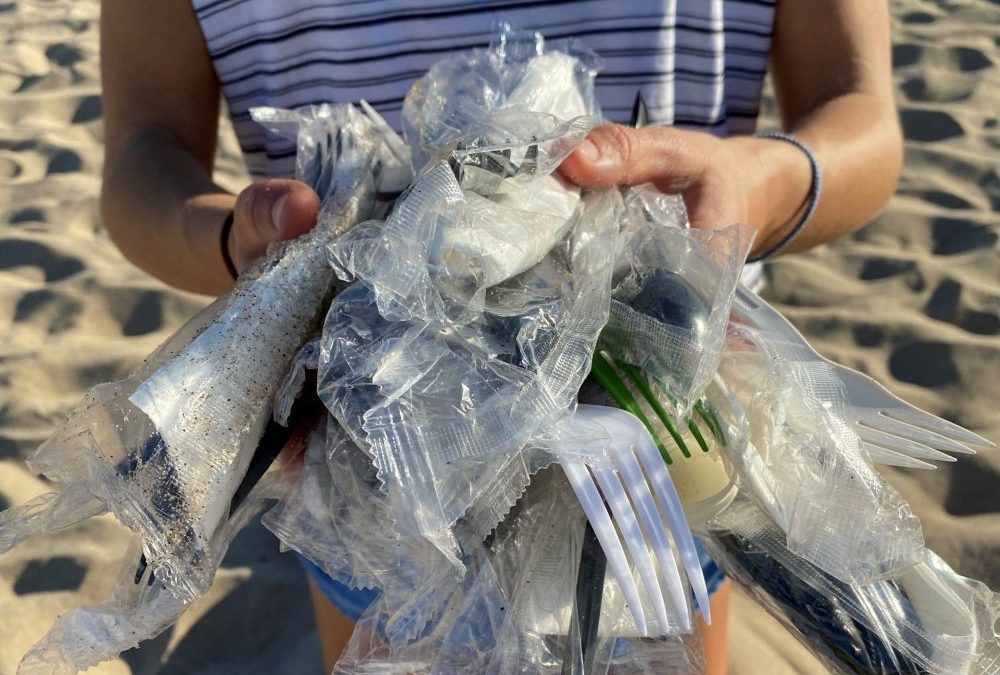By Anna Schniepp
If you have ever spent time in the Zero Waste space on the internet, you may have come across perfectly curated minimalist kitchens with no plastic in sight. The reality, however, is that this goal is unrealistic for most people. Not everyone has access to bulk stores, farmers markets and specialty shops that offer plastic-free goods. Moreover, these beautiful zero waste households ignore the fact that the problem is not consumers who have little to no say how their products are packaged, but the companies that continue to prioritize plastic packaging. So, what can we do?
Consider a Trash Audit: If you’re a fan of the outdoors, it’s not an uncommon sight to see wrappers, bottles, tissues and more littering everything from neighborhood parks to remote mountain vistas. When you visit an outdoor space, consider bringing a trash bag and collecting stray trash (and remember to dispose of your own trash correctly!) and take it to the next level with a trash audit. Keep track of frequently spotted brands when picking up trash and email those companies about their contributions to the ongoing waste problems.
Contact Brands You Love: Is there a particular product that you love but it bugs you that it comes in plastic? Email the company and let them know your thoughts! Caving to consumer pressure, many brands are beginning to offer plastic free alternatives as it becomes clear that it is a priority for their customers. Commit to sending one or two emails a month and encourage your friends to join in!
Support Legislation: Keep an eye out for upcoming proposals that focus on reducing our reliance on plastics. Here in Los Angeles, the “Skip the Stuff” policy to prevent unwanted plastic utensils being added to take-out orders has been approved by the City. Keep the momentum up by contacting your representatives to thank them for supporting the motion! And on a federal level, let your representatives know that you support policies like the Break Free From Plastic Pollution Act.
Above everything, be kind to yourself. Unless you are a billionaire with a fleet of private jets, a mega mansion, or a multinational corporation that actively contributes to harming the planet, you are not the problem. Most of the damage being done to our planet is not the result of that steak you ate for dinner last week or that bottled water you bought because you forgot to bring your reusables, but the economic systems in place that prioritize cheap, unsustainable practices. Keep making changes on an individual level and this Earth Day join us in considering ways to make our low waste, plastic-free journeys a catalyst for positive changes in our communities and our world.

